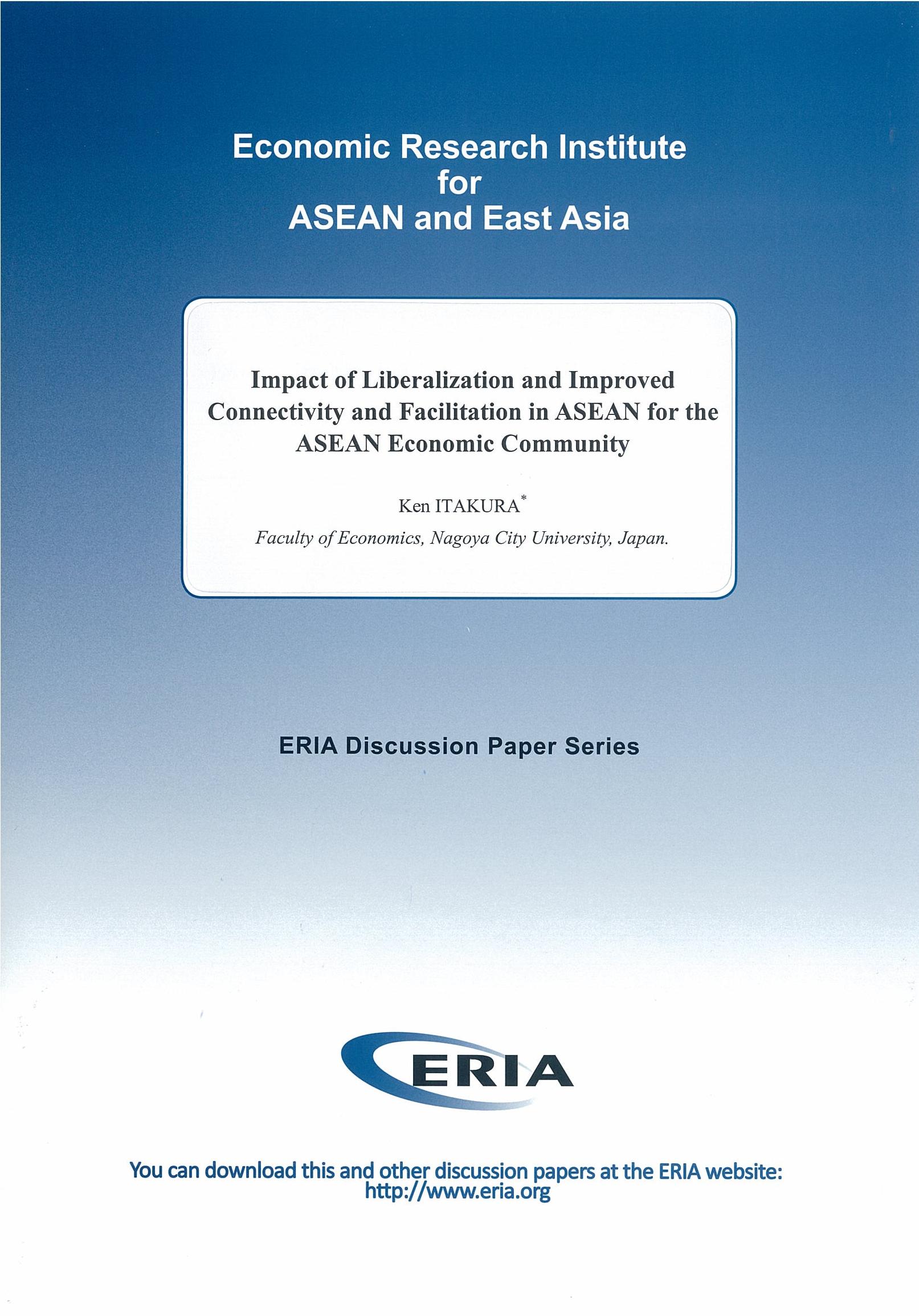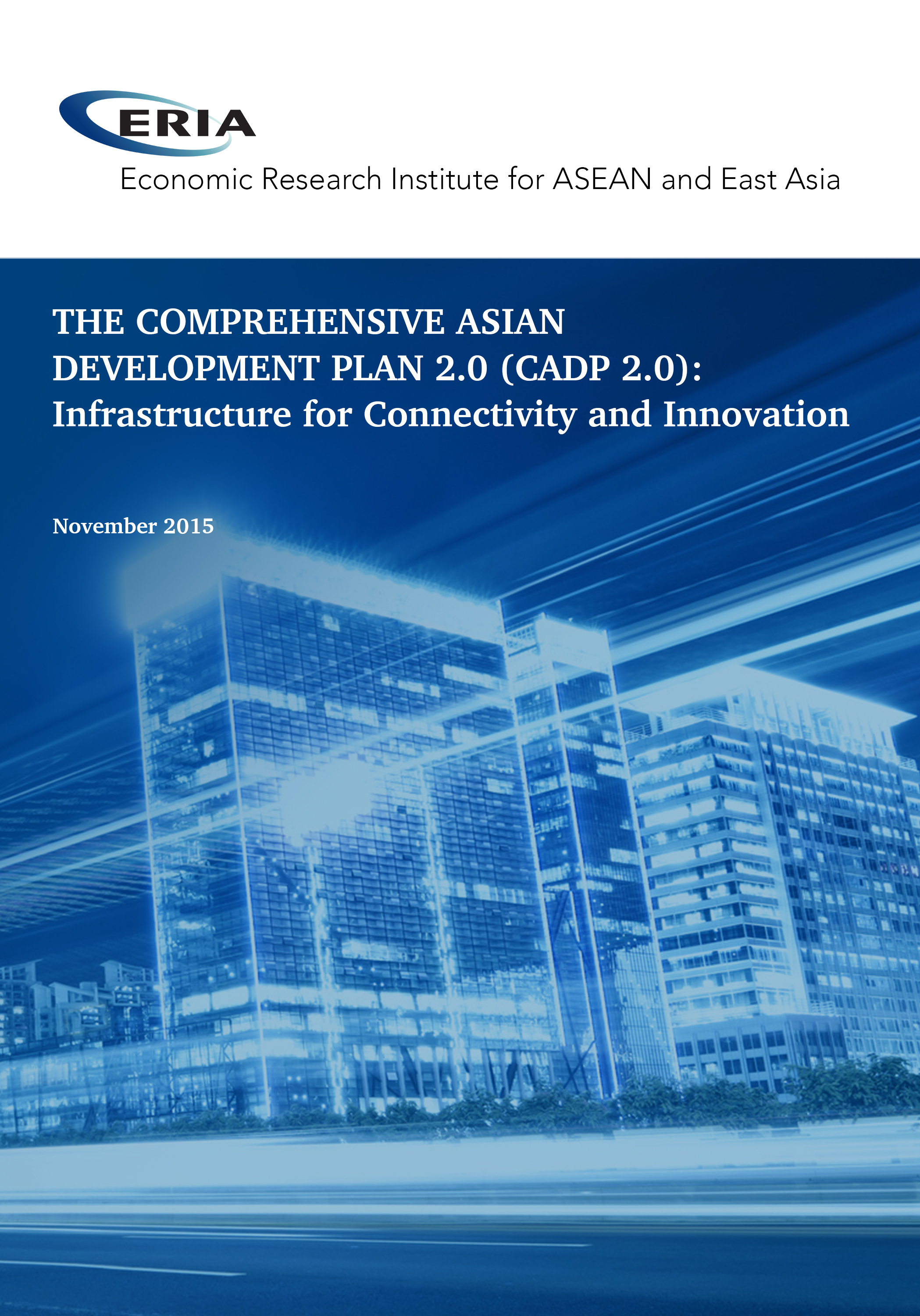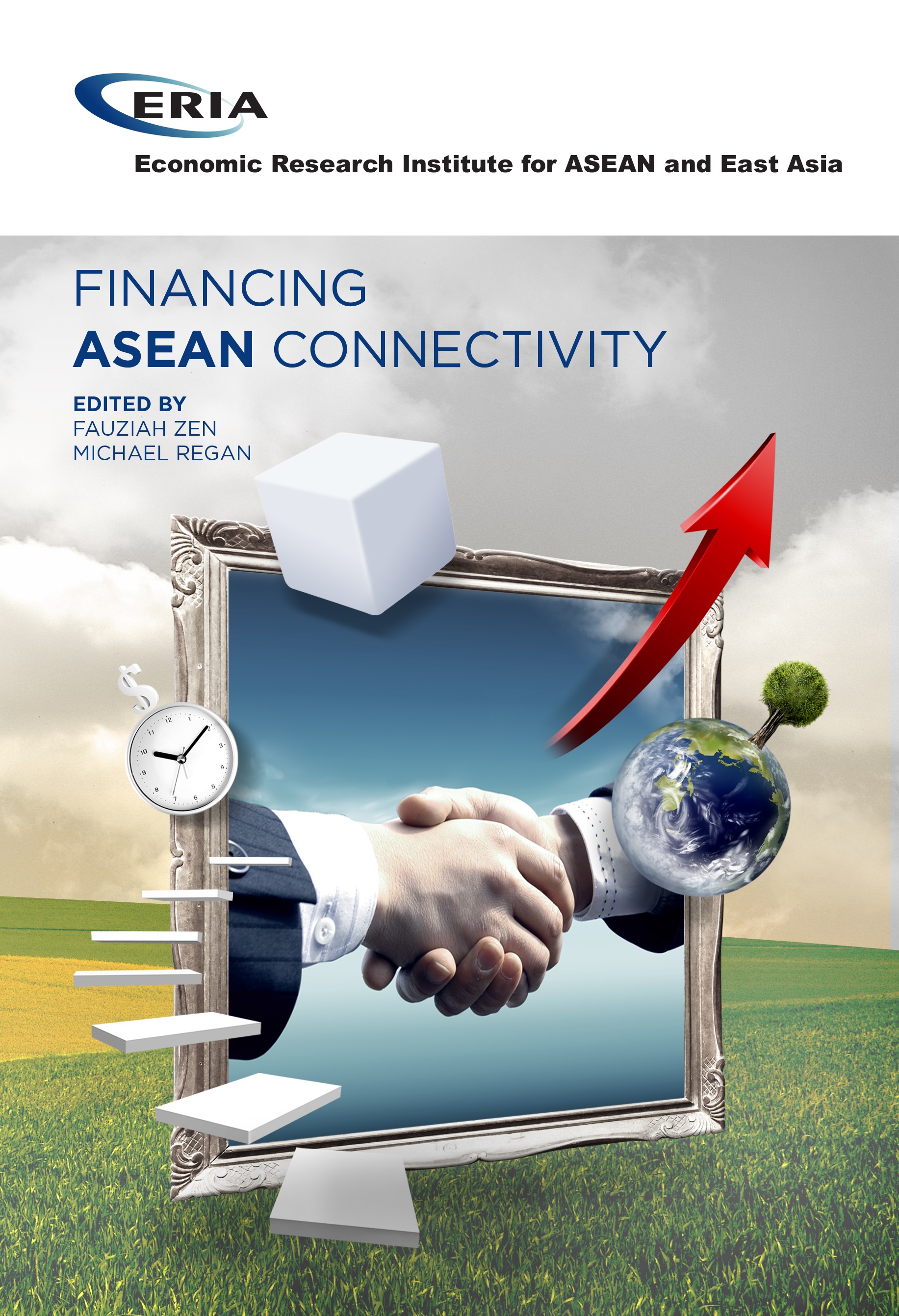Impact of Liberalization and Improved Connectivity and Facilitation in ASEAN for the ASEAN Economic Community

Date:
1 January 2013Category:
ASEAN, Competitiveness, Connectivity, TradeType:
Discussion PapersTags:
Print Article:
Abstract
This study evaluates the impacts of liberalization and improved connectivity and facilitation among the ASEAN member countries. This study attempts to evaluate economic impacts of the liberalization in ASEAN by applying economy-wide simulation analysis based on a recursively dynamic CGE model. We conduct policy simulations to capture the impacts of broader regional trade liberalization. Three main components driving the FTAs are to reduce average applied tariffs on goods, to lower barriers to trade in services, and to save time-cost arising relating to logistics.
Simulation results reveal that reducing ad valorem equivalents of trade barriers has significantly positive impact on economic welfare. Although there are differences in magnitude of positive contributions to welfare, all of the FTAs of which the ASEAN member countries are participating tend to raise welfare. Among the FTA policy scenarios examined in this study, the ASEAN+6 FTA leads to the largest positive impact on real GDP for most of the ASEAN member countries. Consequently, liberalization reforms among the ASEAN member countries attract more investments into the region both from domestic and foreign households, as well as generating higher volumes of international trade.




